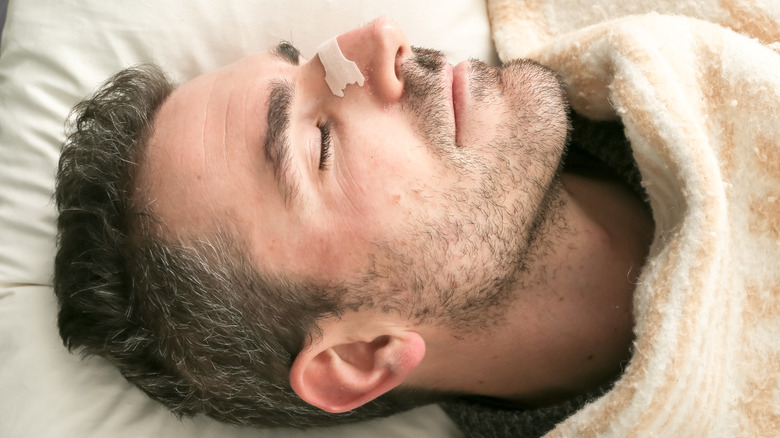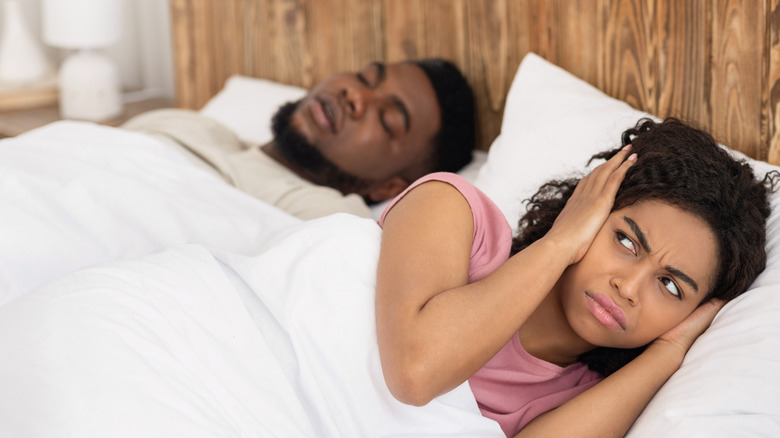Do Nasal Strips Help With Snoring?
Snoring is common in households worldwide and can affect people of all ages and genders, including children. According to the American Sleep Association, snoring happens when your airflow is obstructed either through the nose or the back of the throat. Nearly half of all adults snore periodically, and certain risk factors can increase your chances of snoring, according to Johns Hopkins Medicine. As we age, we may see an increase in our snoring due to our tongue and throat muscles relaxing more often. Other risk factors for snoring include sleeping positions, alcohol use, a deviated septum, or genetics (via South Florida Sinus and Allergy Center).
Because snoring is so common and disruptive, it makes sense that people seek over-the-counter methods for preventing it, like nasal strips. Nasal strips are small adhesive bandages that fit over the bridge of the nose, opening your nostrils and increasing airflow as you breathe throughout the night. But do nasal strips actually work?
The limitations of nasal strips
Nasal strips can be an effective measure for treating snoring in some. The good news is they're drug-free, come with no serious side effects, and are easy to purchase. The bad news is there are limitations to using nasal strips, and they won't work for everyone. For instance, if your obstructed breathing is due to thicker throat tissue versus obstruction in the nose, nasal strips are unlikely to be effective (via Johns Hopkins Medicine). Additional issues with nasal strips are the possibility they can fall off while you sleep.
So what happens if you've tried nasal strips, but they've proven unsuccessful? Experts suggest you may have an underlying disorder that nasal strips won't fix, like polyps or sleep apnea, according to the American Sleep Association. It's important to recognize such disorders and treat them effectively, especially if they're causing sleep deprivation. Keep in mind the recommended amount of sleep for adults is seven to nine hours per night. Johns Hopkins Medicine recommends speaking with a healthcare professional to determine if a noninvasive procedure can help remedy your snoring.


